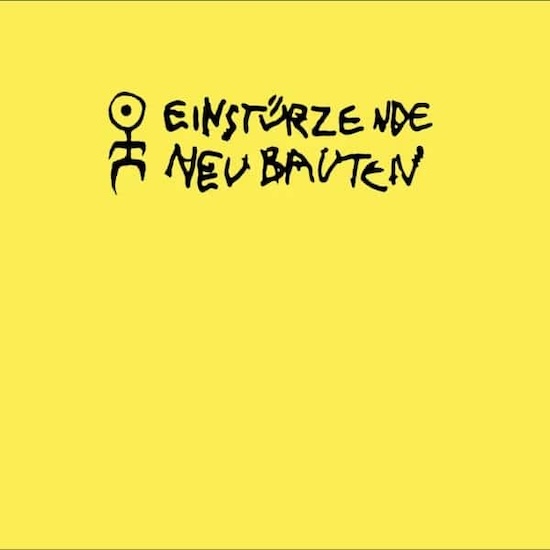If Einstürzende Neubauten were waging a war against sleep back in the 1980s, then on their new studio album they’re waging one against brevity. Rampen (apm: alien pop music) is a double album that’s almost prog-like in its dimensions. 2020’s Alles in Allem was compact and punchy, whereas here we have something sprawling and cosmic – or even kosmische – with a sense of stately grandeur that comes from hanging around for forty-four years and defying incredible odds. If albums can be likened to novels then Rampen is a bit like Ulysses in that it’s nourishing, complex, thrilling and frustrating, and an absolute bugger to finish in one go.
Back in the day, the cassette was Neubauten’s media, selling their wares on the Berlin and Hamburg tape underground. Rampen (apm: alien pop music), conversely, has been designed for the full double vinyl experience, deluxe and opulent, with each side specifically tailored so that songs segue in each other with ease. On side three, for instance, Blixa Bargeld falls into ‘The Pit Of Language’, then pays a visit to ‘Planet Umbra’, before the pit is reprised on ‘Tar & Feathers’ with the tongues wailing ominously, evoking a whole Tarkovskian universe in which earthly dreams and surreal sci-fi melt into one other.
These fourteen new songs were largely built from improvisations that were started on tour in 2022. Neubauten would take a simple concept and some root notes and Bargeld would embellish lyrically from some choice phrases projected onto a monitor in front of him. The Rampen of the title means “ramp” in German, and specifically a ramp for a rocket in this context, the catalyst for the alien pop music that follows. According to Bargeld, it’s been a method of composition the group have employed since Haus der Lüge, back towards the bitter end days of their time with Some Bizzare. This is the first time an entire album has been created in such a way.
Between the controlled chaos across the theatres of Western Europe to the Candy Bomber studio in Berlin a strange osmosis has occurred, a transformation that’s reflective of Neubauten the band. The coarseness and the clanking – the hitting and hoping – has evolved into a sophisticated noise made with an array of bespoke power tools and more conventional instruments, employing subtlety as well as dexterity these days. Lyrically, we survey the terrain of Bargeld’s thought processes, from the urban to the urbane: on ‘Pestalozzi’ he’s sitting on a throne barking didactic orders concerning recipes; on ‘Gesundbrunnen’ we quickly vacate the titular Berlin suburb to exploring black holes and shady underworlds.
The failure to introduce any sonic disruptors this time, such as the introduction of air horns on Perpetuum Mobile, means that Rampen has an unusual surety to it, free from the wildcard elements that can take things into uncharted territories. The unpredictability in the process came at the inception rather than as an obstacle in the production itself. This makes for what might be the most polished album in the Neubauten canon, though one band’s polish is another’s poison. There are still interjections of metal perc here (played by N U Unruh) or electric drill (played by Rudolph Moser) there, and if it’s a less dangerous record than some of its predecessors, that’s mainly in the health and safety sense. The buildings are no longer at risk of collapse, and you surely wouldn’t want it any other way after four and a half decades in the trade.


